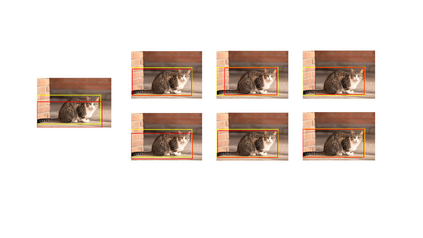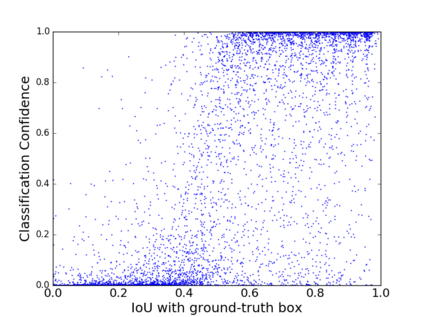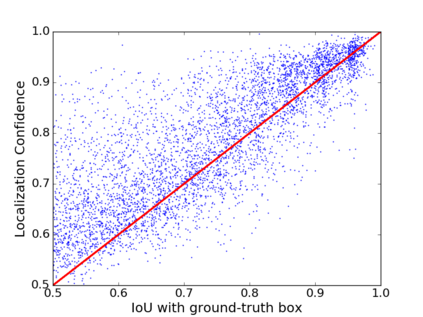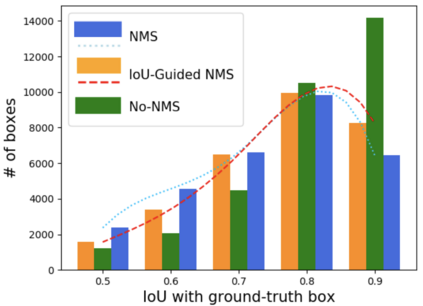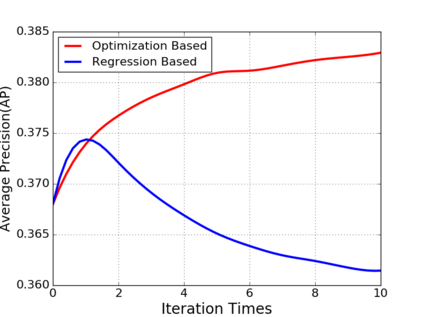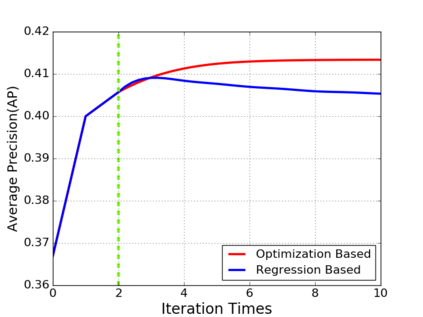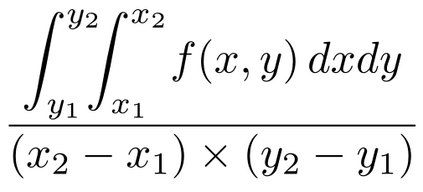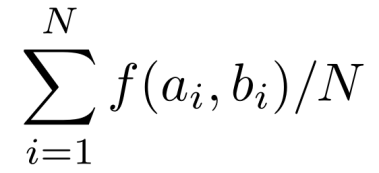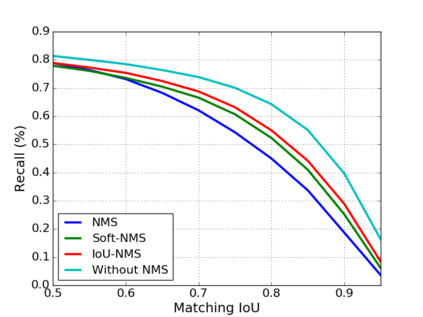Modern CNN-based object detectors rely on bounding box regression and non-maximum suppression to localize objects. While the probabilities for class labels naturally reflect classification confidence, localization confidence is absent. This makes properly localized bounding boxes degenerate during iterative regression or even suppressed during NMS. In the paper we propose IoU-Net learning to predict the IoU between each detected bounding box and the matched ground-truth. The network acquires this confidence of localization, which improves the NMS procedure by preserving accurately localized bounding boxes. Furthermore, an optimization-based bounding box refinement method is proposed, where the predicted IoU is formulated as the objective. Extensive experiments on the MS-COCO dataset show the effectiveness of IoU-Net, as well as its compatibility with and adaptivity to several state-of-the-art object detectors.
翻译:以CNN为基础的现代物体探测器依靠捆绑盒回归和非最大抑制来将物体本地化。 虽然类标签的概率自然反映了分类信任度, 但本地化信心却不存在。 这使得适当本地化的捆绑盒在迭代回归过程中退化, 甚至在NMS期间被抑制。 在论文中, 我们建议IoU-Net学习预测每个检测到的捆绑盒和匹配的地面实况之间的IOU。 网络获得了这种本地化的信心, 通过保存精确的本地化框来改进NMS程序。 此外, 还提出了一种基于优化的捆绑盒改进方法, 将预测的IoU配为目标。 MS- COCO数据集的广泛实验显示了IM- CO- 数据集的有效性, 以及它与若干状态的物体探测器的兼容性和适应性。


